Posted on: 8 July 2022
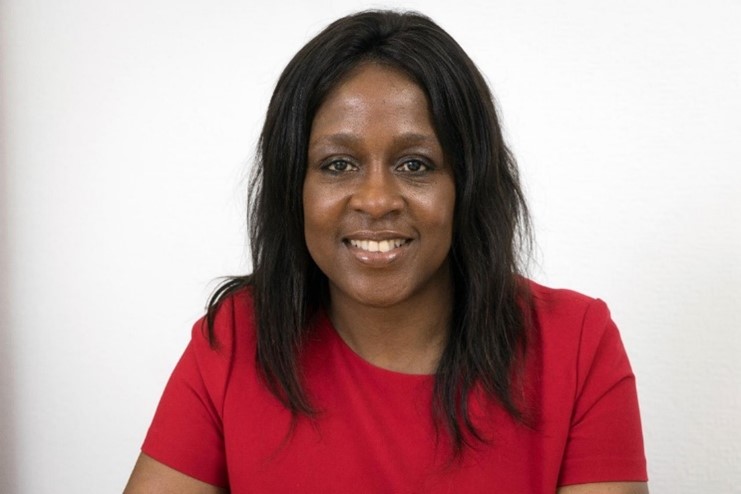 Hello, my name is Foluke Ajayi and today I want to venture into sociology and discuss the link between geography and personalisation…
Hello, my name is Foluke Ajayi and today I want to venture into sociology and discuss the link between geography and personalisation…
I’ve been in post for three months and am still very much in the discovery phase, learning and assimilating everything I can about this wonderful organisation. This includes refreshing my knowledge of this part of the world – I spent part of my early career at Bradford Teaching Hospitals as a Clinical Scientist in Audiology specialising in paediatrics and cochlear implants and it is great to be back in the Bradford District. For those of you who are about to turn to Google to find out where I am, let me start the geography lesson.
Where is Airedale? The River Aire starts in Malham Tarn up in the Dales, sinking underground at the majestic Malham Cove, beloved of walkers, potholers and twitchers. Wending its way down through Skipton it then flows through Keighley, Bingley, Saltaire and Shipley before passing through Leeds and joining the Ouse at Airmyn. The stretch between Malham and Leeds is Airedale. And yes, Airedale dogs were originally bred here, for hunting rats apparently…
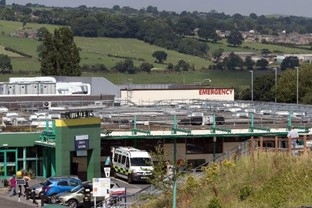 Airedale Hospital is small district general hospital with around 350 beds, located in Steeton, a village between Keighley and Skipton. As well as our acute services we also have community services, operating across 700 sq miles, up into the Dales as far as Bentham, just 15 miles from Lancaster, and into the dormitory towns around our side of Bradford. We straddle both Bradford Metropolitan District Council and Craven District Council, the latter soon to be part of North Yorkshire Council. It’s a massive geography, one that I already knew to some extent from my days of travelling through to Morecambe Bay but am learning more intimately now.
Airedale Hospital is small district general hospital with around 350 beds, located in Steeton, a village between Keighley and Skipton. As well as our acute services we also have community services, operating across 700 sq miles, up into the Dales as far as Bentham, just 15 miles from Lancaster, and into the dormitory towns around our side of Bradford. We straddle both Bradford Metropolitan District Council and Craven District Council, the latter soon to be part of North Yorkshire Council. It’s a massive geography, one that I already knew to some extent from my days of travelling through to Morecambe Bay but am learning more intimately now.
It’s an area which also gives us a huge diversity of patients, as our patch includes some of the most deprived postcodes in West Yorkshire as well as some of the wealthiest. The electoral constituency of Keighley & Ilkley is often held up as one of the most polarised in the country.
It is too easy to associate serious issues solely with deprivation and poverty and to think of the Dales as the postcards portray them, verdant and picturesque. But we have significant issues at the Craven end of our patch: loneliness, isolation, mental health issues, boredom leading to antisocial behaviour and alcoholism, lack of affordable housing, few transport links, technology difficulties. Living and working in the Dales looks like the idyll, but the realities can be very different. Don’t get me wrong; it is a beautiful part of the world in which to live and work, but don’t be beguiled by the chocolate box image. Life can be messy and living in a beautiful landscape doesn’t preclude that. Our duty, both as a healthcare provider and together with our wider Bradford District & Craven Partnership, is to support our communities when they need us, wherever they are. And that is precisely what we do - and in a more joined-up way than ever before.
I am having a fabulous time getting to know Team Airedale. We have people who have worked here all their lives; in fact, we have many examples of three and even four generations of families working here, grounding the Trust strongly in its community, caring for family, friends and neighbours. By the same token we have employees from all over the world, creating a diverse, international workforce, bringing a richness to our services for communities we serve. My ambition and passion is personalisation of care for our patients and this diversity enables us to do exactly that. I am a big believer in celebrating our differences: we all have something to offer, we all have differences that define us, so it’s up to us to use those differences and perspectives, to create something amazing.
Personalised care is about recognising what matters to the individual and tailoring our service offer to meet their individual strengths and needs. We know that a one-size-fits-all approach does not meet the increasing complexity of people’s needs and expectations. This should give the individual more opportunity for choice and control over their mental and physical health. We are forming new relationships between people, professionals and the system to make the most of the expertise, capacity and potential that exists in people, their families and the community in which they live, work, learn or play. Ultimately, we want people to live healthy, happy lives and receive the best possible care regardless of their social status or geography.
It was the 74th birthday of the NHS earlier this week. I am proud to have spent my career working for this amazing institution, proud of ‘Acting as One’ with our place partners across Bradford District & Craven to support our communities, and proudest of all of the amazing people who make up Team Airedale, making a difference all day, every day.
Have a great weekend – come and visit Craven!
Foluke Ajayi
CEO, Airedale NHS Foundation Trust
What else has been happening this week?
Partnership cements place of voluntary, community and social enterprise sector within the partnership
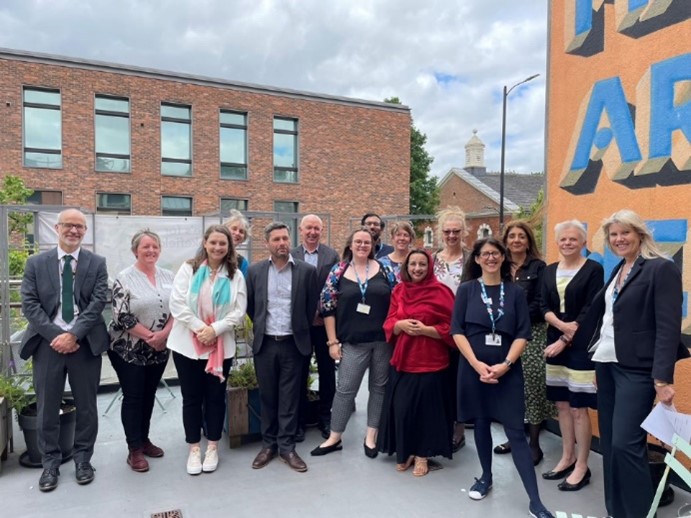 West Yorkshire Health and Care Partnership and the area’s voluntary, community and social enterprise sector (VCSE) signed a memorandum of understanding (MoU) on Monday 4 July, cementing the role of the sector as an equal partner at all levels.
West Yorkshire Health and Care Partnership and the area’s voluntary, community and social enterprise sector (VCSE) signed a memorandum of understanding (MoU) on Monday 4 July, cementing the role of the sector as an equal partner at all levels.
The VCSE makes a substantial and valued contribution to the lives of 2.4 million people living across the area in shaping and delivering health and care services. It brings different people’s voices into play, as well as innovative and agile ways of delivering care. The signing of the MoU is a significant step in seeing the sector as equal partners, alongside the NHS, councils and others, in the work of West Yorkshire Health and Care Partnership. You can read more about the work of the VCSE on our website and more on this story on our news page.
Every Sleep a Safe Sleep resource shortlisted in the Nursing Times Awards 2022
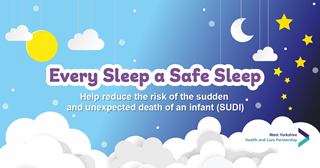 This week, we were delighted to hear that our ‘every sleep a safe sleep’ staff resource, to help reduce the risk of the sudden and unexpected death of an infant, has been shortlisted in the Nursing Times Awards 2022 under the Public Health Nursing category. In September we’ll present to the judging panel at the Nursing Times with the winners being announced at an awards ceremony on 26 October.
This week, we were delighted to hear that our ‘every sleep a safe sleep’ staff resource, to help reduce the risk of the sudden and unexpected death of an infant, has been shortlisted in the Nursing Times Awards 2022 under the Public Health Nursing category. In September we’ll present to the judging panel at the Nursing Times with the winners being announced at an awards ceremony on 26 October.
The sudden and unexpected death of a baby is one of the most devastating tragedies that can happen to any family. The safe sleep resources are aimed at colleagues who work with pregnant women and families where there are babies aged up to 12 months
To find out who else made it to the shortlist see the Nursing Times Awards 2022 pages.
15 years of smokefree law
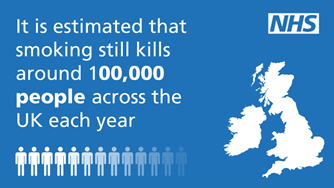 Friday 1 July marked the fifteenth anniversary of the 2007 smokefree law protecting people from secondhand smoking in public spaces such as offices, shops and pubs. Earlier this year, we reaffirmed our commitment to help smokers stop by signing the NHS Smokefree pledge registered on the Smokefree Action Coalition website. This is a set of commitments endorsed by national health and public health leaders and signed by local leaders to show commitment to securing a smokefree country by 2030.
Friday 1 July marked the fifteenth anniversary of the 2007 smokefree law protecting people from secondhand smoking in public spaces such as offices, shops and pubs. Earlier this year, we reaffirmed our commitment to help smokers stop by signing the NHS Smokefree pledge registered on the Smokefree Action Coalition website. This is a set of commitments endorsed by national health and public health leaders and signed by local leaders to show commitment to securing a smokefree country by 2030.
Visit the NHS better health quit smoking pages to access the latest quitting aids, apps, information, one-to-one advice, and local support.
NHS Green Plan event
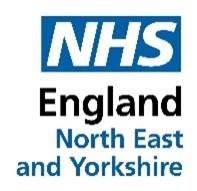
 The Green Plan event on 6 July showcased the achievements of trusts and Integrated Care Systems in the North East and Yorkshire, to support the NHS-wide ambition to become the world’s first healthcare system to reach net zero carbon emissions, and a look ahead to a greener and healthier region.
The Green Plan event on 6 July showcased the achievements of trusts and Integrated Care Systems in the North East and Yorkshire, to support the NHS-wide ambition to become the world’s first healthcare system to reach net zero carbon emissions, and a look ahead to a greener and healthier region.
There were presentations and workshops about the fantastic work being done across our region to improve patient care and community wellbeing whilst tackling climate change and sustainability issues. Colleagues who attended met and talked with people from across the region and shared and learnt from case studies and innovations covering a wide range of greener NHS areas.Speakers and organisations included:
- Nick Watts, Chief Sustainability Officer, NHS England and NHS Improvement.
- Sam Allen, Chief Executive of the Integrated Care Board for the North East and North Cumbria Integrated Care System
- Greener NHS Team, NHS England and NHS Improvement.
- North East and Yorkshire Trusts and Integrated Care Systems.
Colleagues facilitating and presenting from West Yorkshire Health and Care Partnership were:
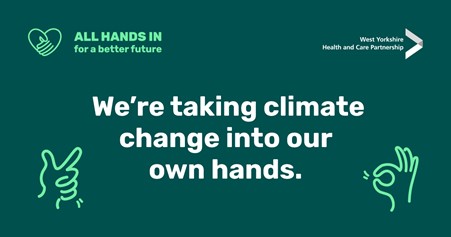 Planning and facilitating - Hawarun Hussain (NHS England NEY)
Planning and facilitating - Hawarun Hussain (NHS England NEY)- West Yorkshire Primary Care Green Plan Toolkit - Richard James WYICS
- West Yorkshire Travel Plan Network (Ringo Cheung, West Yorkshire Combined Authority)
- Yorkshire Ambulance Service and Greening NHS Fleet (Alexis Percival, YAS)
- Innovation delivering net zero (Pete Waddingham, YHASHN)
- All Hands In – Lou Hallworth, Magpie, Jeanette Miller West Yorkshire Health and Care Partnership)
A recording of the session will be made available.
Neurodiversity team puts focus on Autism and ADHD
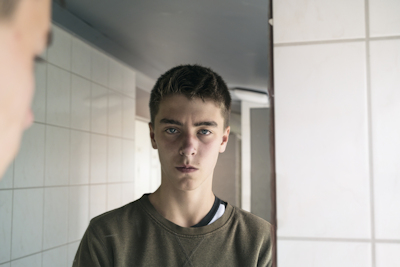 A two-year project to improve the lives of neurodiverse people is bringing together partners and people who use services across the ICS to identify areas to work on collectively, focusing on the needs of the population rather than planning at organisational level in order to deliver more integrated, high-quality, cost-effective care. The Transforming Care Programme (TCP) received funding to be able to focus on Autism and ADHD until March 2024.
A two-year project to improve the lives of neurodiverse people is bringing together partners and people who use services across the ICS to identify areas to work on collectively, focusing on the needs of the population rather than planning at organisational level in order to deliver more integrated, high-quality, cost-effective care. The Transforming Care Programme (TCP) received funding to be able to focus on Autism and ADHD until March 2024.
An initial piece of work is to carry out a deep dive to:
- Understand the current experience of users and families of Autism and ADHD services. Mapping existing Autism and ADHD provision, analysis of existing pathways, services, governance, costs in each place.
- Assess place and system wide initiatives and ways of working to see if these are/could improve how the system works and the impact on individuals and families
- Identify projected future gaps/issues to address
- Explore options to proactively address future projected need/areas of work
The deep dive will use the information and data captured along with people’s views and experiences to produce a report and recommendations to present to the Mental Health, Learning Disabilities and Autism partnership board.
Co-production is key to the development of this work, engaging, co-designing and shaping services with neurodivergent people, those who use services and those who work in our services bring valuable insight. Touchstone has been awarded the contract to lead on co-production to engage and work with autistic people and people with ADHD and their families to ensure their voice is heard and they are part of the innovative ideas to influence and create change.
We now have a West Yorkshire wide steering group and reference group which meets monthly. This is made up of partners from across the partnership. We have a co-production steering group to work with Touchstone to lead on the engagement across our 5 places – Leeds, Bradford, Calderdale, Kirklees and Wakefield.
It is early days for this project and we will be sharing more with you as we go along, if you wish to know more about this work or get involved please contact Shelley Russell on shelley.
Peer support for young black people in Leeds
 Young Black Minds is a Leeds Mind service in partnership with Black Health Initiative, open to Black individuals, aged 16 to 30, who live in Leeds. It will create closed peer support community groups based on shared personal experience and empathy, focusing on strengths to help develop skills and strategies to maintain mental health and wellbeing. The service offers six months of support starting off with 1-1 peer support then progressing from there.
Young Black Minds is a Leeds Mind service in partnership with Black Health Initiative, open to Black individuals, aged 16 to 30, who live in Leeds. It will create closed peer support community groups based on shared personal experience and empathy, focusing on strengths to help develop skills and strategies to maintain mental health and wellbeing. The service offers six months of support starting off with 1-1 peer support then progressing from there.
Mental health is a huge topic in black and minority ethnic communities and is often not spoken about enough. In this podcast, Pratyasha, Abdullah and Sienna from Young Black Minds talk about some of their mental health experiences and the issue of stigma in their communities. You can read more about the issue in their blog.
The future of complex rehab services across West Yorkshire
Health, care and voluntary sector colleagues across West Yorkshire are working together to improve services for scores of people with complex mental health needs who need support in a locked inpatient rehabilitation setting – commonly referred to as Complex Rehabilitation (or complex rehab). This includes developing a new 16 bed inpatient unit based in Leeds, and addressing significant gaps in care for women with complex needs.
People accessing complex rehab commonly have a combination of conditions described as schizophrenia, bipolar disorder and complex emotional needs that include a diagnosis of personality disorder. They may also have other needs such as cognitive difficulties and conditions such as complex dementia and brain injuries.
Recent research conducted with patients and carers across West Yorkshire found that people experience longer hospital stays and that being further away from home dislocated them from their family and local community. For many this meant losing hope, struggling to have their voices heard, and many had a higher prevalence of alcohol and substance misuse.
Earlier this year four new programmes of work kicked off to improve services for those who are disadvantaged by the current provision. They are:
- Expansion of the Community Rehabilitation Enhanced Support Team (CREST),
- Developing a new 16 bed inpatient unit for complex care in Leeds serving West Yorkshire,
- A new regional pathway for women with complex needs and those with a primary presentation consistent with a Personality Disorder, and
- Addressing the gap for complex rehabilitation hospital care for women across West Yorkshire.
Read more on the West Yorkshire Health and Care Partnership website.

